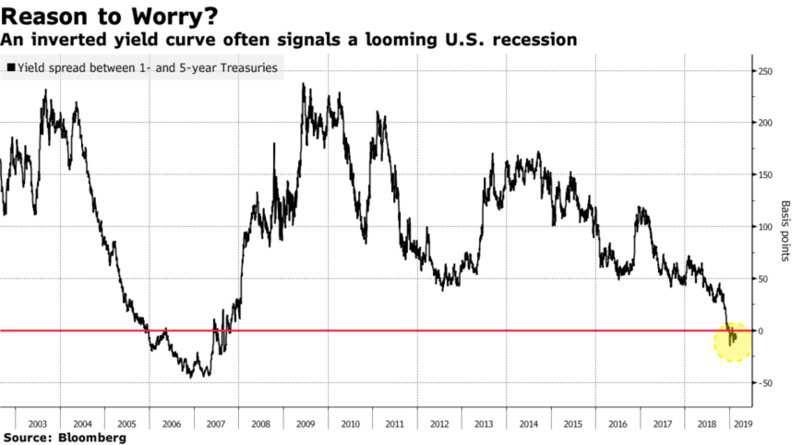Wolf Wolf!! Recession is coming – but can AI help?
11/03/2019
This week I delivered a speech at Cass Business School on how and if AI could help in dealing with recessions. There is so much noise about the next recession, that I wonder, if people prefer a recession to cool down the economy a bit.
And the expectations on Constantinople is pushing up crypto prices again – although I don’t believe for a second that, the crypto market is big enough yet, to trigger recessions.
Assume you are driving a Ford Fiesta, can the speed indicator on your dashboard keep you from having an accident? Upgrading your car to a more sophisticated, intelligent one would definitely help. But that doesn’t prevent you from having an accident either. Even self driving cars could be hacked, or could have a bug that causes accidents.
AI/Machine learning or any variation of data driven intelligence, as we know them today, can provide us suggestions – and clever ones.
The dot com bubble burst and the subprime mortgage crash happened because of too much liquidity in the market leading to bad lending and spending decisions. And it only took a trigger like a policy change or a crash of Lehman Brothers to sap liquidity off the market. So, what are the signs now?
Those insights combined with macro economic data should give these institutions the intelligence to choose their investments. The applications of open banking have largely been focused around selling services to customers in a personalized fashion. However, open banking data should help us understand where the economy is heading too.
Risk management functions in banks/FIs have been beefed up since the recession. About £5 Billion is spent in the UK alone on risk and regulatory projects every year. The ability to perform scalable simulations in a Quantum computing ready world will help banks provide near real time risk management solutions.
In capital markets, we model the risk of a position by applying several risk factors to it. Often these risk factors are correlated to each other. To be able to model the effect of a dozen or more correlated risk factors on a firm’s position is hard for conventional computers. And as the number of these correlated risk factors increase, the computational power required to calculate risks increase exponentially. This is one of the key issues of simulations (not just in financial services) that Quantum computers are capable of solving.
11 years ago, when the recession happened, regulators were ill-equipped to react due to the lack of real time insights. Today they have regular reports from banks on transactions, and better ways to understand consumers’ behaviour. That clubbed with macro economic data trends, should provide enough indicators for regulators to set policies. So, when there is a tax law that would trigger a collapse is being proposed, they should come up with strategies to bring the law into effect with minimal damage to the economy.
In the machine learning world, there are two different approaches – supervised and unsupervised models. If you understand the problem well, you typically go for the supervised model and see how the dependent variable is affected by the independent variables.
It’s important for regulators and central banks to run exploratory analysis – unsupervised models, and assess the patterns and anomalies that the algorithms throw.
Data from consumer behaviour, geo-political events, macro economics and the market should give these algorithms enough to identify patterns that bring about recessions. This may not necessarily help us avoid a recession, but could definitely reduce the impact of a sudden recession, or help us engineer a controlled recession when we want a cool down of the economy.
Daily Fintech.
dailyfintech.com
Finyear & Chaineum
Recevez chaque matin par mail la newsletter Finyear, une sélection quotidienne des meilleures infos et expertises en finance digitale, corporate finance & crypto finance.
Read for free The daily newspaper Finyear & its daily newsletter.
Receive the Finyear’s newsletter every morning by email, a daily snapshot of the best news and expertise in digital finance, corporate finance & crypto finance.
—————-
Chaineum – Conseil haut de bilan & stratégie blockchain
Conseil en opérations de haut de bilan : ICO STO advisory, levée de fonds, M&A.
Conseil, stratégie & accompagnement de projets en technologie blockchain.
Besançon – Paris + réseau international de partenaires.




